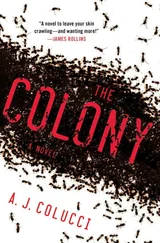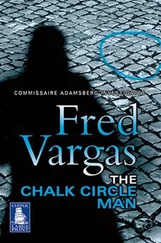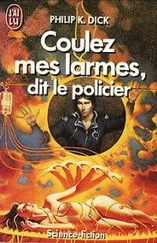The old fishing boat looked ready for scrap. The deck was splintered and warped by thirty years of lobster traps thrown about. Its boxy shape was antiquated, the hull chipped and bleached to seagull gray. But her engine was in top shape and she maneuvered deftly over choppy waters, cruising toward Sparrow Island at eighty knots, faster than most sailing ships.
Luke and Monica stood on deck, laughing at their own failed attempts to walk a straight line. They fell over each other, squealing like children whenever a spray of water blew across the bow. It was late afternoon and much colder than the marina in Halifax. Luke put on a ski jacket and Monica wrapped herself up in black leather against an ocean breeze that brought the temperature to a brisk forty-five.
Isabelle watched them from the window of the bridge, fighting nausea but glad to see Monica finally loosened up and cheerful. Sean stood beside his mother, holding tight to a holly bush. He wanted to replant it on the island for George, who had been a real botanist. Isabelle was touched and thought her father would appreciate the gesture.
The boat captain was a jovial man named Flannigan. He was a Canadian from Halifax, round and rosy, with a scruffy red beard and eyes as blue as the sea. He had known George for years, brought him supplies once a month, and he navigated the waters like the local cod. Sebastian, his steward, was a small, wiry man with a rugged face who seemed far too muscular for his age, which Isabelle guessed to be close to seventy. He raucously hosed down lobster traps and stacked them in the stern.
As the captain steered the boat, Sean watched in earnest, gripping his fists in the air and mimicking the captain turning the wheel. Flannigan laughed heartily and allowed the boy to take the helm. Sean spun the wheel, looping in a circle as everyone shuffled starboard.
“Please, Sean,” Isabelle complained, her stomach heaving.
Flannigan laughed. “Ye look a wee shit-picky, miss,” he said with an accent that seemed a mix of Irish, Canadian, and pirate.
“Is it always so choppy?” Isabelle asked.
“Been weatherin’ lately. She’s got some lops now, but by tomarra mornin’ she’ll be flat-ass calm.”
Sean pointed to all the instruments and Flannigan nodded, giving names to the tachometer, voltmeter, fuel gauge, and barometer. He tapped a black box above his head. “And dars yer radio.”
It was a two-hour ride, fifty miles up the Nova Scotia coast to Liscomb Island, and then straight out to sea. Luke and Monica watched Sebastian clean lobster traps. With the wicked smile of a salty dog, he handed them an old deck of cards adorned with topless women from the 1950s. They laughed, riffling through the deck. Then they got cold and went inside the cabin to play poker.
Flannigan spent the time giving Sean lessons on how to drive a boat. “’Ave a son m’self,” he told Isabelle. “Quiet boy, loike dis fella.”
She asked how often he’d visited George, and he said once a month he’d bring food and a drum of diesel. George would give him a list of books to order and deliver, along with various magazines on botany and scientific equipment.
“Yer fodder ’ad a fondness fer nature, ’e did.”
Isabelle nodded and asked the captain if he delivered supplies to other islands.
Flannigan smiled, pointing to the eastern horizon. He told her of Sable Island, three hundred kilometers out to sea, and how he was the only boater willing to make the trip. The island was home to five people, eight hundred feral horses, fifty thousand seals, and the great white sharks that ate them. But it was famous for its high number of shipwrecks. Over three hundred vessels had fallen victim to the island’s sandbars, thick fogs, and treacherous currents.
Flannigan talked for an hour about storms and shipwrecks. As Isabelle listened, the fog suddenly brightened. Through a veil of white, she squinted at a silhouette in the distance, a dark clamshell that could only be an island. The boat seemed to pick up speed and the engine strained. They were fighting a strong current and the captain shouted over the motor.
“She’s a brutal tide, means we’re gettin’ close. Yer fodder ’ad no one but me to come oyt ’ere. Ye won’t see a single vessel come by fer months.”
Isabelle shifted uneasily.
“Don’t ye worry, miss. Oi ain’t been wrecked once.”
Then the fog lifted and the air became warmer. Seagulls shrieked overhead and the water looked almost black. Sparrow Island lay dark and desolate before them, every detail quickly taking form. The boat glided faster, pulling sideways with the current.
“Thar she is,” Flannigan said with a smile of meeting an old friend.
The island was no more than three miles wide. Isabelle didn’t remember seeing the land from afar and its grim appearance took her by surprise. The woods seemed ominous and ugly, cast in shadows of dark gray. Spikes of conifers and of spindly white trees twisted like skeletons. Tendrils of fog wrapped around their trunks and there was an eerie stillness to the place. She felt a chill on her neck that wasn’t the wind.
The Acadia made a wide loop around the western shore and closed in on a lagoon. The inlet was partly fenced in by a natural jetty, and getting inside wasn’t easy. The current pulled the boat east, where the shoreline rose sharply into thirty-meter cliffs. Waves crashed violently against the rocks below.
The boat shimmied and bounced as the engine sputtered and the captain swore under his breath, struggling to stay on course. As they reached the inlet, the current fought hard and Isabelle stared anxiously at the ominous rocks of the jetty nearly upon them. The waves were picking up speed, growing wild as they headed toward the cliffs.
“’Ang on,” Flannigan warned. Isabelle clutched Sean with one hand, the seat cushion with the other.
At last they broke through the riptide. The engine quieted and the boat scuttled into the lagoon, still rocking. The captain called his steward to take the wheel. Sean and Isabelle followed him to the lower deck. They grasped the railing for support, while the captain seemed balanced and cheery.
“Land ’o!” he shouted, and prepared for docking.
The engine hummed pleasantly and Isabelle felt her heart begin to calm. There were seagulls overhead, tiny sparrows tweeting, and the boat chugged along on tepid waves.
Monica followed Luke out of the cabin and they stood at the rail.
She turned up a lip. “ That’s it? Where’s the palm trees? Those look like Christmas trees.”
Luke chuckled. “We’re in the north Atlantic. It’s not tropical. Did you think this was a tropical island?”
“ No, ” she said quickly. “But I thought it would at least be warm. Not so hideous. Jeez, this is gonna suck.”
Up close it was all wilderness and jagged rocks, and along the shore was a thin strip of black beach.
“That’s not even sand,” Monica said. “It’s like… dirt.”
“Tar Beach,” Isabelle said. “That’s what my mother called it.”
Luke shook his head. “It’s not tar or dirt. Probably volcanic rock. Fragments of lava, just like Hawaii.”
“This is so not Hawaii.”
“It does seem a bit creepy,” Isabelle said to Flannigan. “Especially those woods.”
“’Eard some bad stories aboyt dem woods.”
“Yes,” she replied. “My father told me many.”
“Yer fodder was a tough old bird. Just loike dis oiland.” Then his grin slipped away. “Ye be sure to stay indoors at noight. Gets cold enough to skin ye.”
The boat pulled up to the dock, where Nicholas Bonacelli was standing in a suit and overcoat. He waved as they pulled into the mooring.
“Eh-yuh, mister lawyer, sir,” Flannigan shouted. “’Oweya gettin’ on?” He jumped ashore with the dock lines and quickly wound them around the cleats.
Читать дальше












